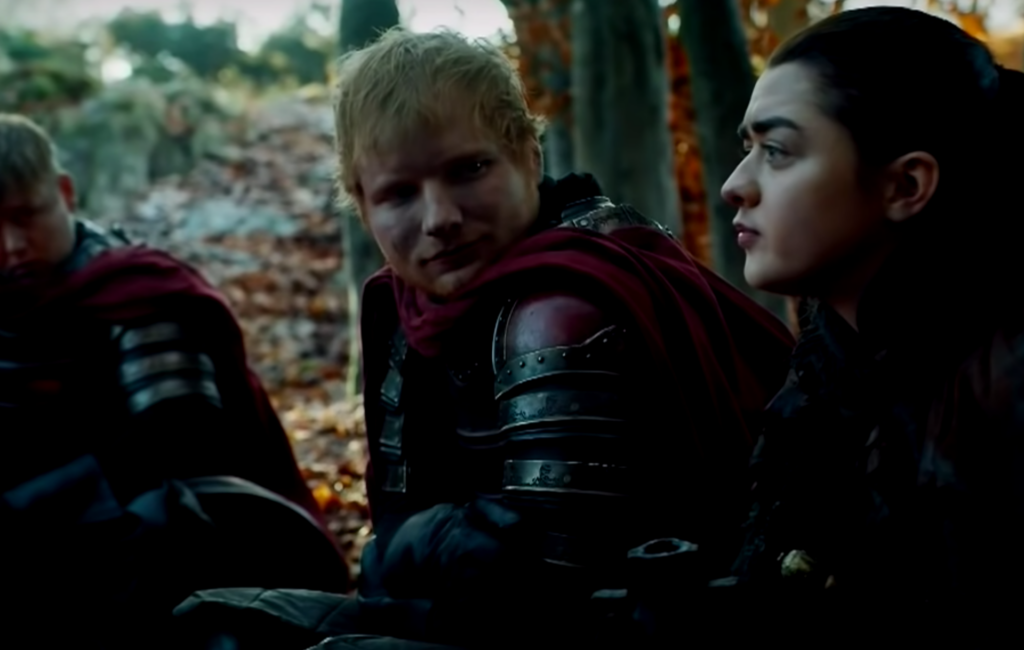Ed Sheeran says his ‘Game of Thrones’ cameo “pissed off a lot of people”
"I didn’t expect there to be that much backlash"

Ed Sheeran has spoken about his cameo in ‘Game Of Thrones’, saying he “didn’t expect there to be that much backlash” and that he thinks he “pissed off a lot of people”.
The British singer-songwriter played a Lannister soldier who encountered Ayra Stark (Maisie Williams) in the hit show’s season seven premiere ‘Dragonstone’.
While musicians such as Coldplay, Bastille and Gary Lightbody from Snow Patrol also appeared on the show, Sheeran’s character was given lines and sang ‘Hands of Gold’.
Speaking to Absolute Radio today (November 1), Sheeran said: “I feel like I pissed off a lot of people by being in that, but anytime I meet someone that is like, ‘oh you cameoed on that show,’ I’m like, ‘What would you say?’”
He added: “Everyone would say yes. I was a fan of the show; they asked me to be in it. I didn’t expect there to be that much backlash but I am definitely more careful when I am offered cameos now.”
His brief appearance on the show was followed with some criticism, with fans arguing the scene felt unrealistic and out of place. He deleted his Twitter account shortly after but claimed it was unrelated.
In 2018 ‘Game of Thrones’ actor Kristian Nairn, who played Stark family servant Hodor, said having cameos on the show was “stupid”.
Speaking to Huffington Post, he recalled hearing about Sheeran’s appearance.
“I was like: ‘Why is Ed Sheeran here?’ I mean, Ed Sheeran’s great. He’s a great guy, great musician, but why is he in Game Of Thrones?”
He added: “It’s a fantasy show. We’re all caught in this amazing world and spend so much time and money and talent to create, and all of a sudden there’s a pop star? What?”
Sheeran released his new album ‘=’ last week.
In Rolling Stone UK’s two-star review of the artist’s new record, Ali Shutler wrote that the singer-songwriter’s “personal reflections often fail to hit the intended note”. He added that while there were “flashes of brilliance”, it failed to convey its message of “being present and celebrating your loved ones”, and instead was “retreading the same ground”.
